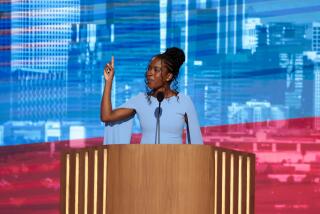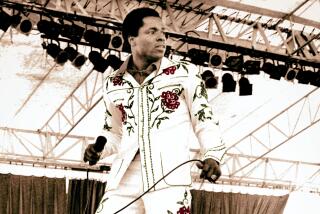‘Howl’ Is a Rant, Not Ginsberg’s Best Poem
It’s interesting to see, two generations after Allen Ginsberg came on the scene with “Howl,” that his “party poem,” as we called it back then, is hailed as “original” by an academic writing yet another book on the Beats (Commentary, Feb. 19). I know about that stuff, having known Allen from the early 1950s. Jonah Raskin is praising “Howl” through the prism of today’s politics, what he terms the Patriot Act era, as refracted through 40 years of Beat propaganda. When I prepared an anthology of American poets in 1959, I chose Ginsberg’s “Kaddish,” a long threnody for his mother, precisely because I thought of “Howl” as a poem that could be taken but once -- and best recited at a coven of stoned adolescents (as the first recording reveals).
Paul Goodman -- a poet and novelist of note, and a gay therapist, who was famous in the mid-’60s for his book “Growing Up Absurd” -- said, in a 1959 review that put down Jack Kerouac’s “On the Road” as fundamentally infantile, that Ginsberg’s poem was no howl -- or as Raskin terms it, an “American scream” -- but simply a gripe, a tedious gripe at that.
One might go on, but it would be shouting into the blast of hot air that has blown through the heads of pothead kids for decades now. It is simply derisory to state, as Raskin does, that Ginsberg redivivus “would make poetry matter again.” Poetry has always mattered, and one trusts it always will. Mere rant, or rap, or rave, or whatever, is not, never was, nor ever will be poetry.
Jascha Kessler
Professor of English and
Modern Literature, UCLA
More to Read
Sign up for our Book Club newsletter
Get the latest news, events and more from the Los Angeles Times Book Club, and help us get L.A. reading and talking.
You may occasionally receive promotional content from the Los Angeles Times.








